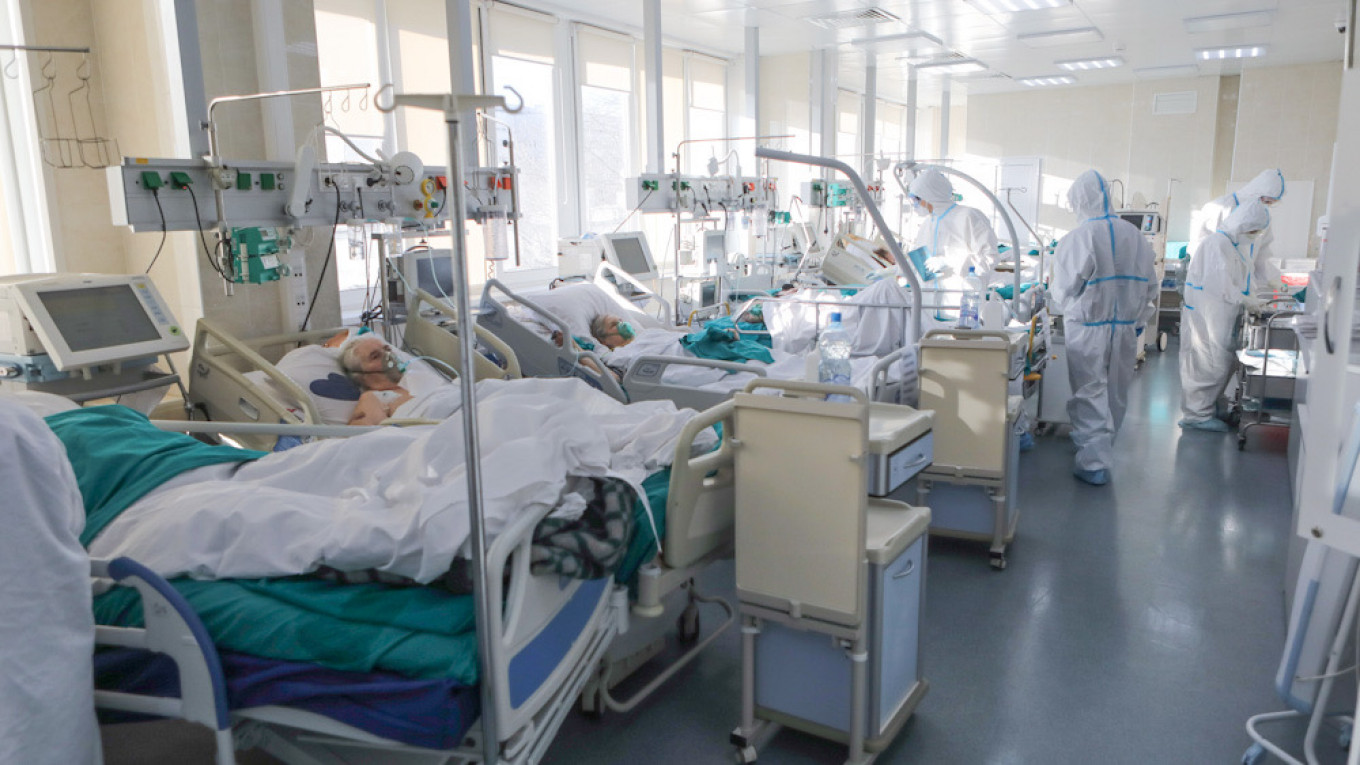Russian epidemiologists have detected two mutated strains of the coronavirus within the country but said they aren’t necessarily deadlier or more contagious, the head of state consumer protection watchdog Rospotrebnadzor announced Monday.
“We are seeing the formation of a Siberian version and the formation of a northwestern version” of the SARS-CoV-2 virus that causes coronavirus infection, Interfax quoted Rospotrebnazor head Anna Popova as saying.
Popova had announced last fall that a partial mutation of the SARS-CoV-2 virus had been detected in the Siberian Federal District but noted that the changes in the new strain’s structure did not make it more dangerous or contagious.
On Monday, Popova said there's no reason to fear the new variants, adding that experts are currently researching their epidemiological significance.
Popova said the Russian Academy of Sciences’ medical sciences department would receive descriptions of these strains as soon as the materials "are ready for publication."
Later Monday, Rospotrebnadzor’s press service said there’s no evidence that the new mutations detected in Russia result in a more severe course of infection.
Russia confirmed its first cases of the British and South African variants within its borders earlier this year.
Studies have suggested that Russia’s Sputnik V vaccine may be less effective against these strains.
The state-run Gamaleya research institute that developed Sputnik V has said it has the technology to “update” the jab to protect against new, more-contagious strains of the virus.
Russia has been one of the world’s most-affected countries by the virus and has recorded at least 422,000 excess deaths since the start of the pandemic.
A Message from The Moscow Times:
Dear readers,
We are facing unprecedented challenges. Russia's Prosecutor General's Office has designated The Moscow Times as an "undesirable" organization, criminalizing our work and putting our staff at risk of prosecution. This follows our earlier unjust labeling as a "foreign agent."
These actions are direct attempts to silence independent journalism in Russia. The authorities claim our work "discredits the decisions of the Russian leadership." We see things differently: we strive to provide accurate, unbiased reporting on Russia.
We, the journalists of The Moscow Times, refuse to be silenced. But to continue our work, we need your help.
Your support, no matter how small, makes a world of difference. If you can, please support us monthly starting from just $2. It's quick to set up, and every contribution makes a significant impact.
By supporting The Moscow Times, you're defending open, independent journalism in the face of repression. Thank you for standing with us.
Remind me later.






